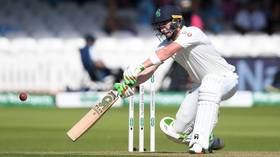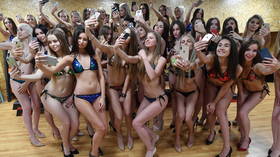Professional sport is a platform for celebrating inequality

Everyone loves sports, right? Well, not always and not everyone, because, while sport in itself is undoubtedly healthy and fun, professional sport in the 21st Century has become an apologist for stark inequality.
Money rules sport, so much so that one of the main functions of sport today is the normalization of inequality and excessive wealth. In other words, because many of the most successful sportspeople and teams get where they are as a result of benefitting from more money and resources than their rivals, we indirectly end up celebrating inequalities of wealth whenever we celebrate them.
Don't believe me? Then here's some evidence: research published this year by the UK's Social Mobility Commission found that people educated at private schools are significantly overrepresented among professional sportspeople. In Britain, 43 percent of professional cricketers went to private (rather than state or public) schools, while the proportion is 37 percent for professional rugby players and 31 percent for British Olympic medalists. Among the general UK population, only seven percent of people are privately educated, indicating that those who benefit from privileged access to better training and resources have much better chances of becoming elite athletes or sportspeople.
Also on rt.com Best in the world: Lionel Messi and Megan Rapinoe win FIFA player of the year awards at Milan gala (VIDEO)Much the same overrepresentation of athletes born to richer families can be found in other countries besides the UK. For instance, a research paper published in the Public Health journal in 2017 found that, of athletes representing Canada, the United States of America, Great Britain and Australia at the 2014 and 2016 Olympics, "privately educated athletes constituted 30.3 percent and 32.7 percent of winter and summer athletes." Once again, this is a significantly higher percentage of privately educated people than you'd find in the general populations of these countries. And, if nothing else, it reveals that those from more affluent socioeconomic groups are more likely to succeed in sports, precisely because they benefit from inequality.
What's particularly absurd and perverse about the role of inequality in producing elite sportspeople is that such people are championed as heroes by their working class fans, who, in actual fact, often suffer because of the very same unjust system that helped elevate many of their idols above them.
Indeed, this unfortunate juxtaposition between poor and disadvantaged fans on the one hand, and rich and privileged athletes on the other, is at its starkest and most flagrant in football. It's already well-documented that the most successful soccer teams are generally those that spend the most money on signing players, while certain academic studies have also found that spending on wages is predictive of footballing success. So not only is inequality predictive of success once again, but there's also the fact that the top football players are multimillionaires who get paid millions of dollars per month. In financial and socioeconomic terms, they have very little in common with the spectators and fans who cheer them on every week, particularly when these fans are often collecting for or depending on food banks.
To an outside observer, it can seem strange that millions of disadvantaged people frequently venerate multimillionaires. However, that's the beauty of sport from the perspective of capitalist ideology: it serves to disguise the workings and effects of inequality, hiding the financial advantages many elite sportspeople have depended on behind a facade of 'natural ability' and 'God-given talents.'
That's why, in today's world of advanced capitalism, sport serves to get people used to the idea of inequality, to the idea that a small band of people are deserving of having vastly more money, wealth and success than the rest of us.
By Simon Chandler, a London-based journalist focusing on politics and technology
The statements, views and opinions expressed in this column are solely those of the author and do not necessarily represent those of RT.














